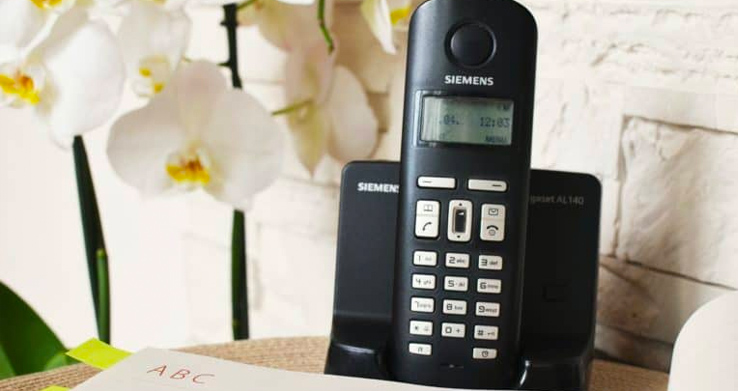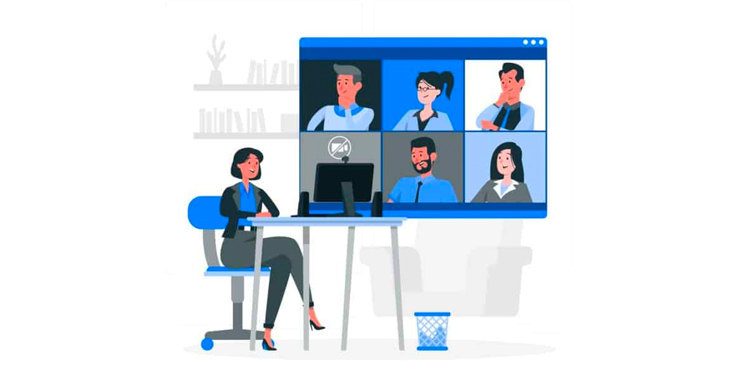
Free Your Biz: 6 Reasons to Ditch Your Analogue Phone Line
Ah, the trusty analogue phone landline – whatever would we do without you? Well, when you port your analogue telephony to digital VoIP systems, you can do quite a lot.
The analogue PSTN (public switched telephone network) has stood us in great stead over the years – with some parts of its infrastructure dating back to the 19th Century! But understandably, this makes it a bit outdated in today’s fast-paced, internet-driven world.
So, that said, should this be the time to ditch analogue PSTN telephony for good? Our experts think so – here are 6 reasons why.
6 Reasons Why You Should Get Rid of Your Analogue Phone Line
Reason 1: The Analogue Phone Network Is Being Retired in 2025
Yup, you heard that right.
All “traditional” analogue telephony infrastructure in the UK is being switched off at the end of 2025.
What does this mean? Well as of December 2025, the UK’s analogue PSTN infrastructure will be switched off, meaning that the country’s humble landline telephony services will no longer operate. You’ll therefore need to replace any analogue phone systems with a digital counterpart – most likely some kind of VoIP or SIP service. By 2023, you won’t be able to purchase a new analogue phone line or system ahead of the big switch off.
So why is it happening? BT’s main rationale seems to be down to the onward march of technology. We’re now embracing digital tech more than ever, in both our professional and personal lives. Broadband speeds are getting faster by the day, and are generally more than capable of handling both general internet use and digital telephony simultaneously. So what’s the point of holding on to (and maintaining) aging copper cables that have been around since the 1800’s?
We’re reading between the lines here, but there’s also a lot of cost and hassle involved in maintaining PSTN’s aging national infrastructure. Why maintain two systems in tandem – PSTN and broadband – when you can manage just one network that can do the job of both? In the toss-up between the two, broadband wins hands down.
Our advice? There’s likely going to be a rush of panic buying in the 2 years or so before the big switch off, and some providers may start jacking up the price as demand rises (read: “as late-buyer desperation sets in”). So, we suggest that you start the transition to digital telephony now. You can always chat to us about any concerns you may have about getting the ball rolling!
Reason 2: Traditional Telephony Tethers You to the Office

At the start of the COVID-19 pandemic, reliance on landline telephony provided a major snagging point for many organisations who suddenly had to work out how to operate from home.
However, with VoIP digital telephony, as long as each member of your team has an internet-enabled device and a decent internet connection, they can make or receive calls to/from anywhere in the world using your trusty, recognised “landline” number.
All your team need to do is install your VoIP system’s associated app (called a “softphone”, short for “software phone”), log in, and they’ll be able to use your phone system as they would in the office. This includes putting calls on hold, using call waiting systems, being a part of line-hunting groups, passing calls through to colleagues, etc. – even if those colleagues are miles apart!
Digital telephony was absolutely indispensable for many organisations while working from home, and will continue to be a positive boon for many companies who will likely adopt flexible remote working arrangements going forward. Some companies have even used the pandemic as a test case for giving up their premises and working from home for good! VoIP systems will be essential to keep these teams connected.
Additionally, digital telephony like this will also be useful to sole-operators and micro-businesses – they’ll be able to share a more established-looking “landline” number with their audience rather than relying totally on mobile numbers.
Reason 3: Digital Telephony Doesn’t Stand in the Way of Growth

Oftentimes, when a company is growing or transforming, the telephony costs associated with moving or opening a new branch presents a considerable financial burden. Installing new cabling and hardware can be costly and destructive, as can invasively “ripping and replacing” – removing an old system and replacing it with a new one.
But “new premises” worries don’t end at just the install process. You also have to accommodate for line usage costs – much of which may be taken up with simple communications between branches and/or with off-site personnel.
As long as your whole team have access to the internet – a provision that most office premises come with as standard nowadays – you can enjoy VoIP telephony without pesky cabling or install costs. Setting up new users on a digital telephony system is simple: for the most part, it’s just a case of logging in, adding users, including them on any inbound call logic, giving them access credentials, and they’re on their way!
Splashing out on expensive hardware is also a thing of the past. Your team can operate their telephony from any internet-enabled device of their choice, as long as it has the appropriate VoIP softphone installed.
Also, with VoIP, moving premises doesn’t necessarily mean waving goodbye to the same geographic phone number you’ve had for years. Because digital phone numbers aren’t tied to physical premises like they often are with PSTN numbers, you can take your old faithful number with you wherever you go.
This is another place where I couldn’t find a non-competitor source, but you probably know of more industry sources than me!
Reason 4: VoIP Systems Are Packed with Handy Features
Because VoIP calls are handled totally virtually, digital systems open up a whole new world of interesting features that just wouldn’t be possible with an analogue system.
Of course, digital systems include all of the phone features we’re used to, like auto-attendants, voicemail, call waiting, call holding, transferring calls between users, forwarding, and automatic out of hours settings. However, digital telephony providers boast all manner of useful extras, like automatically emailed voicemail recordings ; emailing automatically transcribed voicemails , notification settings; usage analytics; and much more, depending on the digital telephony package you choose.
Reason 5: Digital Telephony is Great for Business Continuity

It’s not exactly a pleasant thing to think about, but have you ever considered what you’d do if your premises ever underwent some kind of major destructive incident?
If your company’s HQ burned to the ground, for example, telecoms would probably be the last thing on your mind. But if you’re totally reliant on analogue telephony, you’d have little chance of continuing to make and receive calls on your usual number; with your same auto-attendant features and voicemail; and on your same call plan. Even if you did get your work calls rerouted to, say, your home phone number, you’d have no way of putting people through to team members or giving the same polished experience that your callers may well expect.
VoIP to the rescue! Most digital telephony systems are cloud-based nowadays, so in the event of a disaster, you could log in from anywhere and reroute calls to your team’s mobile VoIP apps – with inbound calls following the exact same logic, line-hunting, and auto-attendant functions as before. And in a crisis, we’d all welcome one less thing to worry about!
Reason 6: Affordability
We’ve saved the best for last here. It’s possible that switching to a digital telephony system will actually save you money.
We’re not entirely sure what a post-PSTN world is going to look like, but it’s highly possible that archaic charging structures like line rental will become a thing of the past. Your “line” in future will be your broadband internet connection, so you may simply have to pay that in lieu of line rental. Additionally, exorbitant distance call costs may become a thing of the past, as many countries are also ditching PSTN in favour of digital calling.
The different VoIP and SIP systems on the market all have different charging structures – usually dependent on the number of users within your organisation and the number of premium features you’ve signed up for – quite different to the analogue charging systems we’re all used to.
It’s likely that some VoIP providers will offer both unlimited and pay-as-you-go (PAYG) options. The call analytics that come as standard with many digital systems will likely help pay-as-you-go clients keep a closer eye on spending than analogue PAYG users can currently.
VoIP Solutions: Our Suggestions
There are a vast range of VoIP solutions on the market, but there are two particular options that we’re keeping a close eye on here at Just Business Phones.
PhoneLine+ is an ideal digital telephony solution for small and medium organisations. It’s a fresh contender to the market – launching in May 2021. It’s remarkably quick and simple to set up – as soon as you’re signed up, it’s just a case of setting up your call logic, installing the PhoneLine+ apps on your team’s devices, and you’re away!
PhoneLine+ also features team-wide contact sharing options, provides a range of unanswered call options, is available across a number of devices, and includes in-depth analytics so you can keep on top of charges and usage.
Give us a call on 01204 707146 for more information.
Direct Routing for Microsoft Teams

If you’re already using Microsoft 365 or Office 365 for all of your internal collaboration, file sharing, and productivity, why not use it for your telephony as well?
Direct Routing for Microsoft Teams is a flexible and scalable solution that lets you run all external phone calling and online collaboration seamlessly through the Microsoft Teams app. For a simple per user, per month cost, you can enjoy the future-facing efficiency and mobility of fully unified communications.
Make the most of your 365 licenses today! Learn more about Direct Routing for Teams, or get in touch on 01204 707146!